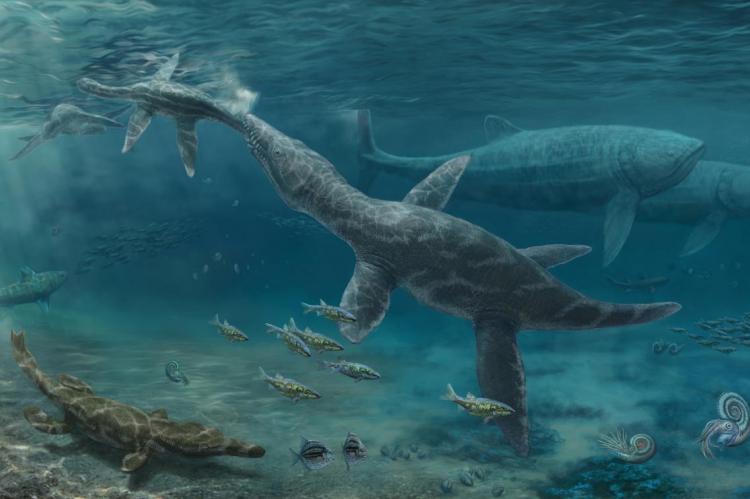How changing seas affected marine reptiles during Jurassic era
During the Jurassic era, marine reptiles living in deep waters thrived as sea levels rose, while those that lived in shallow waters died out, according to research by paleontologists.
By studying the fossilised teeth of reptiles, palaeontologists at the University of Edinburgh have discovered how they adapted to major environmental changes more than 150 million years ago, and how today’s marine life ecosystems may play out.
It also shows for the first time how the broad structure of marine food chains has remained largely unchanged since the Jurassic era.
This was revealed in a paper published by the team in the 3 September issue of Nature Ecology & Evolution journal.
The study focused on the reptile species that lived in the tropical waters stretching from present-day northern France to Yorkshire in the north of England. This region is known as the Jurassic Sub-Boreal Seaway.
The team discovered that the animals could be categorised into one of five groups, depending on their teeth, diet and the part of the ocean they inhabited. This pattern reflects today’s oceanic food chain structure, where different species can co-exist in the same space as they do not compete for the same resources.
Over the 18-million-year period studied, the press release issued by the University stated that “As global sea levels rose, reptiles that lived in shallow waters and caught fish using thin, piercing teeth declined drastically. […] At the same time, larger species that inhabited deeper, open waters began to thrive. These reptiles had broader teeth for crunching and cutting prey.”
Such deep-water species flourished, possibly due to the changes in ocean temperature and chemical make-up taking place, which could have increased the levels of nutrients and prey in deep waters.
The study, which also involved the University of Bristol, gives us an insight into how present-day species at the top of marine food chains might respond to rapid environmental changes like climate change, pollution and rising temperatures.
Dr Steve Brusatte, of the University's School of GeoSciences, said, "Changes in these Jurassic reptiles parallel changes in dolphins and other marine species that are occurring today as sea levels rise, which speaks to how important fossils are for understanding our modern world."


